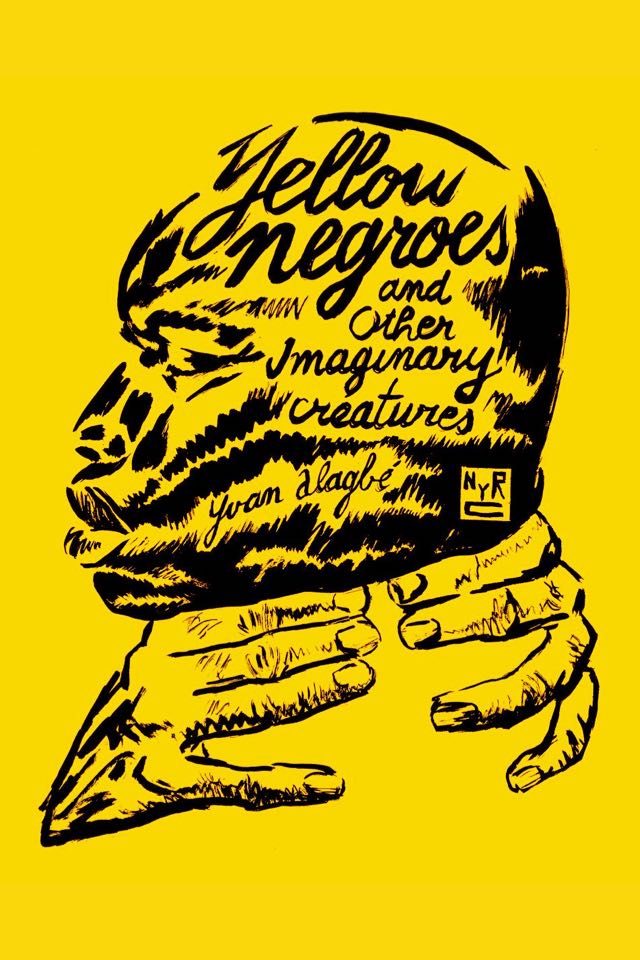Yellow Negroes and Other Imaginary Creatures
— Nicholas Nichols
What would I do
If I could suddenly feel
And to know once again
That what I feel is real?
— Tin Man, ‘The Wiz’
Callous is defined as such:
- 1 a : being hardened and thickened
- 2 a : feeling no emotion
- b : feeling or showing no sympathy for others
If you were unloved in life will people love you in death? Can a lover save you and still allow you autonomy? Is history always written by the victor? I’m not sure of any of these and I’m all the more grateful for it.

Yellow Negroes and Other Imaginary Creatures by Yvan Alagbé takes us on a journey of the different stories of immigrants in France. The project collects work from 1994–2011 and was translated by Donald Nicholson-Smith. Yvan arranges each page like a silent film, there’s a tight focus on the subject for drama and minimal distraction in the background. Leaving only the expression of the subject to speak. Yvan moves from an abstract minimal space to a highly detailed and textured one all on the same page. At times this may bring discomfort, but that’s the point. Yvan’s ink brush strokes do the labor of invoking emotion equal to the text.
Collectively the story focuses on the limitations put on the body of the immigrant and how that affects each aspect of their lives. Because I’m not supposed to be here I can never truly be here. But then I asked myself: Where are you allowed to put your joy? Sadness? Confusion? You wear it of course. Your emotions take over the body, like a hand pressing down harder on a white page expressing frustration or pulled back to show some relief.
The story breaks its own linear thread and critiques French presence in Africa through the lives of political figures such as Thomas Sankara. This was interesting because Yvan wasn’t just critiquing the French, but rather critiquing those in power’s use of storytelling. A statue that appears in the collection at its base reads, ‘If the echo of their voices weakens, we shall perish.’ Is there power in words, and if not, why does every oppressive regime censor the words of the oppressed? Why are histories rewritten in text books? Why are cartoonists fired? Why are countries being demoralized and disrespected?
Take the time out on your day off and join Yvan for a journey through the lives of those displaced.